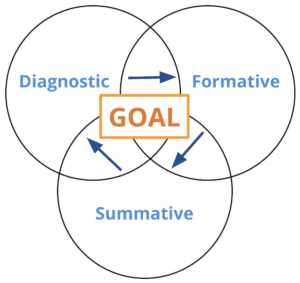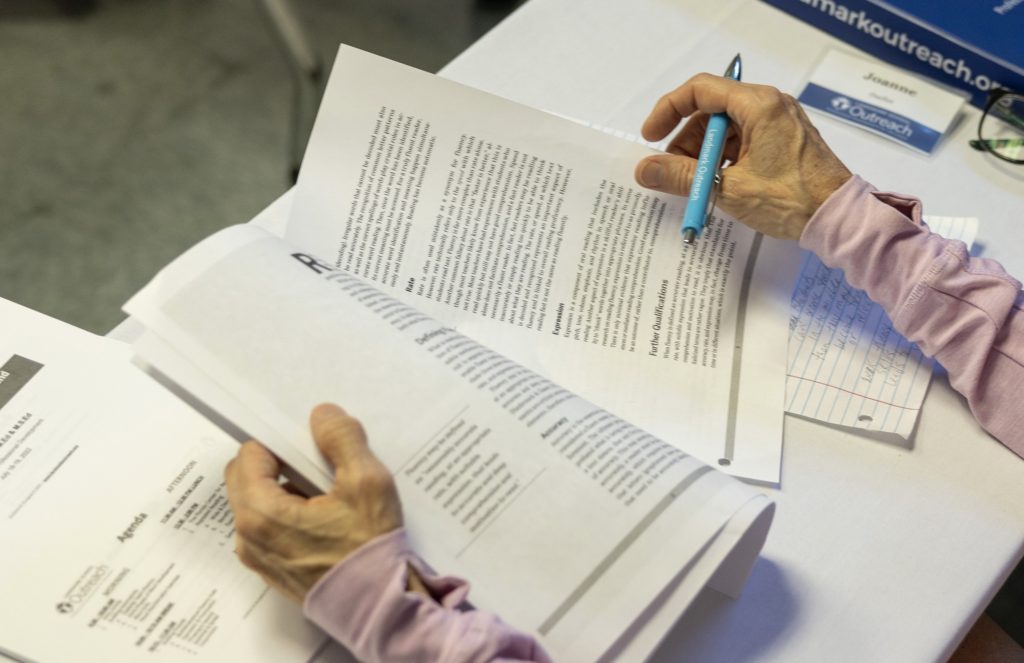Why is it so difficult to assess writing?
Put yourself in the place of a student who just got an important writing assignment back from their teacher. You see a letter grade alongside the comment that justifies the teacher’s scoring decision. You might wonder what makes a C different from an C+? Maybe you worked on this assignment with your best friend … so why did the teacher give you a B+ and your friend an A?
Jumping back into your adult world, you are now in that teacher’s shoes. The challenges of assessing writing are real, and you are the one justifying the grade.
Unlike a math problem that has a clear answer or a science concept that is backed up by provable facts, writing can be challenging to grade because it is …
- Creative. Whether the writing assignment is narrative or expository, each writer combines words in unique and creative ways to express their thoughts.
- Subjective. There are grammar rules to inform accurate writing, but two grammatically correct papers on the same topic can be drastically different.
- Personal. Writing is a form of personal expression, which can make it intimidating to both share and assess.
Despite these challenges, teachers and students have relatively similar concerns when it comes to grading writing. Does the grade reflect student achievement in an accurate and unbiased way? Is the feedback specific enough to explain the grade and guide future skill work and help set goals?
In order to address these concerns, it is important for educators to keep in mind that writing is a complex task that is complicated further by specific learning disabilities such as dyslexia. Completing a writing assignment requires comprehension of both the subject matter and the prompt, as well as the organization skills that help students plan their ideas before writing. Writers must also consider the required text structure, think critically, and establish a clear voice that is appropriate for the audience. These are just a few of the hidden demands that must be addressed as students learn and practice a specified process to become stronger writers. Meaningful assessment is crucial to help students understand their strengths and weaknesses as writers in order to see progress and achieve success.
There are three different types of assessments that must be employed to inform writing instruction and help students set personal writing goals.
Diagnostic Assessments demonstrate the knowledge and/or skills that a student possesses before formal instruction begins for a specified time period or content unit. The benefits of diagnostic assessments are that they …
- Provide an honest picture of student ability and/or knowledge.
- Are ungraded, which can lessen student anxiety.
- Inform effective instruction.
- Help create relevant learning goals.
- Identify strengths and areas for improvement.
Formative Assessment refers to the ongoing process of evaluating the knowledge and/or skills that a student possesses during a specified time period or content unit. The benefits of formative assessments are that they …
- Provide a useful progress / comprehension gauge.
- Can be used with the whole class or small group, as well as individualized for specific students.
- Inform lesson planning.
- Are ungraded, lessening the pressure on the student.
- Can be implemented continuously.
- Allow students to be more metacognitive.
- Can be helpful in timing summative assessments
Summative Assessments evaluate student learning and/or skill acquisition at the conclusion of a specified time period or content unit. The benefits of summative assessments are that they …
- Determine whether students have met learning goals
- Demonstrate student ability and achievement
However, to be accurate, summative assessments need to be …
- Fair and unbiased.
- Varied in format, allowing some student choice, if possible.
- Reflective of instructional methods, allowing students to demonstrate their mastery of specific writing skills.
- Appropriately leveled for student ability.
 As demonstrated in the graphic to the left, all three of these assessments must be employed to help students achieve their writing goals. Diagnostic assessments help to determine student goals, formative assessments evaluate student progress throughout the course of instruction, and summative assessments determine skill mastery. Using all three methods of assessment, remembering to involve students in conversations about their writing, can help both the teacher and student to feel confident in the validity of writing assessment.
As demonstrated in the graphic to the left, all three of these assessments must be employed to help students achieve their writing goals. Diagnostic assessments help to determine student goals, formative assessments evaluate student progress throughout the course of instruction, and summative assessments determine skill mastery. Using all three methods of assessment, remembering to involve students in conversations about their writing, can help both the teacher and student to feel confident in the validity of writing assessment.



